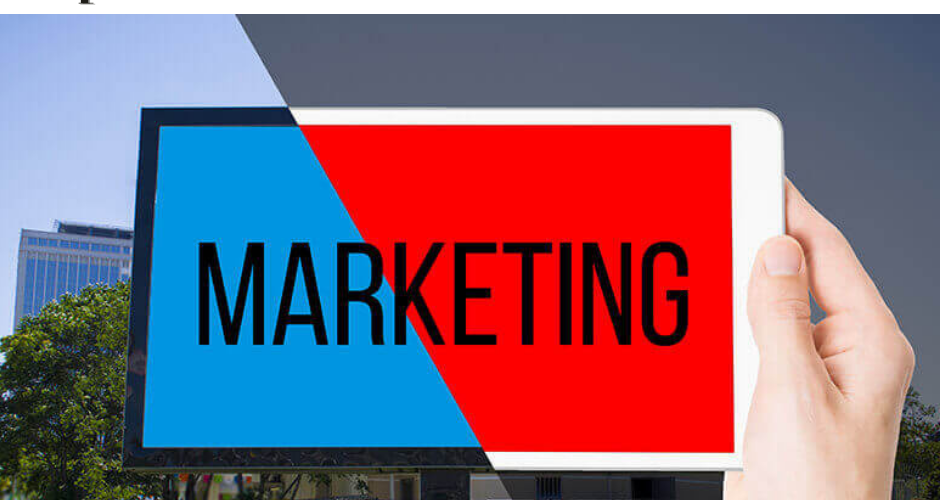While every small business needs a marketing budget, it’s also crucial to spend it carefully and efficiently. When it comes to Online marketing vs. Traditional marketing, how do you determine where to put your money?
Several businesses struggle to make the right “marketing” decision, despite the fact that it might have a big influence on their bottom line. By being more knowledgeable about the differences between digital and traditional marketing.
Many new small business owners are so focused on their products and services that they fail to grasp that success is based on more than simply what the company provides. Success, on the other hand, small business’s success relies heavily on marketing.
Before the internet, marketing, particularly to the general public, was difficult and costly. That has changed the result online. That isn’t to say that conventional marketing approaches don’t have a place alongside internet marketing.
In this article, we’ll see how traditional and online marketing helps current business related news. Before that let us see what is marketing?
Table of Contents
Marketing
Advertising, publicity, sales, social media, merchandising, and distribution are all examples of marketing that you may use to encourage consumers and clients to buy from you. Fortunately, with the emergence of the internet, you now have the option of investing your time and money in one of two forms of marketing: traditional marketing or online marketing.
The debate over whether the approach is the most effective is still going on. The fact is that both strategies have their advantages and disadvantages, and there is no reason to select one over the other. Understanding your target market, the best approach to contact them, and the benefits and drawbacks of each sort of marketing are the keys to determining where to invest your marketing time and money.
Traditional Marketing
Traditional marketing, or what is currently referred to as offline marketing, refers to promotional tactics utilized before the internet. Direct sales, television, radio, and postal advertising are just a few examples of marketing strategies. To communicate their message to the buyer, traditional approaches depended mainly on print advertising such as magazines, coupon books, billboards, and other printed promotional materials like catalogs and brochures.
Brochures were once known as collateral, although the term today encompasses a variety of media used to market a product.
Internet Marketing
The technique of advertising your product or service on the internet is known as internet marketing. Internet marketing isn’t just for bloggers and e-commerce company owners. Even traditional brick-and-mortar businesses can and should utilize the internet to sell themselves.
Websites, search engine optimization (SEO), website banner ads, social media, pay-per-click advertising, and email marketing are all examples of Internet marketing tactics.
Advantages of Traditional Marketing
Connecting with the target audience is simple.
To conveniently target prospective clients, advertisements may be posted on local news newspapers and channels in a particular geographical region.
Hard copies should be saved.
Customers can store physical copies of adverts that they are interested in from newspapers or magazines to refer to when they want to buy that product or service. They can also give those copies to friends, family, and acquaintances who need the goods.
Easily identifiable
People are familiar with traditional advertisements since they have been around for a long time, and they can readily comprehend and identify them.
High-Reaching
Because traditional marketing channels have such a huge client base, a single ad can reach millions of people in a single circulation. This media can also be used to reach those who live in places where there is no internet access or where network connectivity is limited.
Advantages of Online Marketing
Highly Cost-Effective
Small businesses and startups with little money can discover a more cost-effective way to market their goods and services.
Levels the playing field
All are on an equal basis with online marketing, i.e. it gives all businesses, whether global corporations or small businesses, equal and comparable opportunities to acquire targeted clients.
Connect with consumers with compelling content
Material is king on the internet, and if you have compelling content, you can immediately affect your audience.
Increases conversions
The effectiveness of digital marketing is generally determined by the rate at which incoming visitors are turned into consumers.
Higher revenue generation
Your latest business blog ideas will generate more money if consumer engagement and conversion are higher. As a result, companies may grow both domestically and abroad.
Creation of brand awareness
Customers’ brand awareness is aided by digital marketing, which keeps them informed about new goods, offers, and discounts, among other things.
Realize Higher ROI
A better return on investment is achieved when a company creates more revenue at a lower cost.
Traditional Marketing vs. Online Marketing: What’s the Difference?
- Traditional marketing refers to any sort of promotion, advertisement, or strategy used by companies to advertise through conventional media such as radio, television, newspapers, and so on. Digital marketing, on the other hand, is the practice of employing internet marketing channels and methods to promote and sell a company’s products and services.
- Customer engagement refers to how a customer interacts with a company through various online and physical channels. As a result, digital marketing has a greater rate of customer involvement than conventional marketing. This is because, in the case of digital marketing, clients may check product specifications and other offers with just a click and do not need to visit the showroom or the firm.
- Traditional marketing’s return on investment cannot be evaluated, however online marketing’s return on investment can be easily calculated.
- Traditional marketing is less effective and hence more expensive, but online marketing is less expensive and more effective.
- When it comes to showing the outcomes of marketing initiatives, traditional marketing takes time. Online marketing, on the other hand, provides marketers with immediate and real-time results.
Conclusion
To sum up, online marketing has developed in recent years, but it has become more popular than conventional marketing owing to a variety of benefits, one of which is effectiveness over cost. Smart businesses, on the other hand, combine the two to build strong bonds with prospects, leads, and customers.




